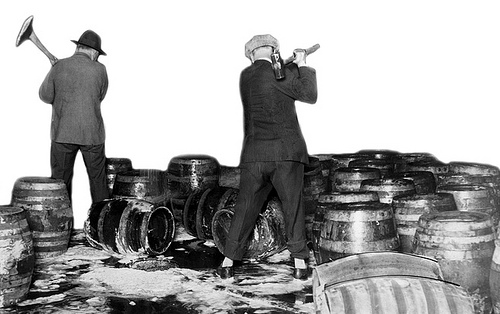Choice-less Starting
Sometimes, at conception, parents choose to have a child. More often than not
it just happens. Parents do not choose which child they will have, a genetic lottery selects which features will grow.

We do not choose who our parents will be. After birth years pass before we even become aware of choice, much less those made by parents. We do not choose the society we are born into, the planet we appear on, or even the star around which we zoom.
We are thrust into existence with out our intent.
After birth a long period of time passes where we are
driven by simple responses to senses: emotional at best, instinctual at worst. Our family, society and environment put upon us what we can learn, what we can know, providing a framework of what we can be.
The demands of being drive us until we finally become aware of our own existence, only gradually do skills develop allowing mastery of body and desire.
Life Divided
A third of our lives are dissipated in sleep. Dreams only a small part of this unconscious portion of our lives. Making choices within dreams can be a rare treat, a momentary fantasy of self control.
Eating consumes another thick slice of life; finding things to put in our belly, chewing and swallowing, seeking a place to relieve the unused excess. These autonomous actions, rarely reach our conscious thought, much less require considered selection.
Taking pause to rest, even in the midst of our labors, it is healthy to let the mind wander a bit. Day dreaming is the flip side to focus, a time to deliberately not act, to stay our hands from making choices become real.
Who among us chooses at each moment to make their heart beat, ears hear, or skin itch? Indeed our bodies function mostly
without mindful intervention.
Another piece of life is used putting on clothes, taking them off again, brushing teeth, grooming bodies, and maintaining the space to live in. These actions are in the main conducted with wandering thought, by rote and habit.
Reality Intervenes
Living among others, we often find choice limited. The needs of spouse and children, family and friends, even society at large limit the range of choices available.

Habits formed from expectations guide much of our time. Listening to other's tell about their own thoughts is necessary to keep relationships healthy. Caring for children and the aged demand attention from other choices that might be made.
Work demands action from us. Boss or customer schedules toil where we attend and interact. Plans made by others guide our activity. We do what is required of us in order to gain those resources necessary for life. Making a choice to work, is followed by many demands we do not choose.
Sometimes, the world intrudes in more harsh ways. Accidents happen. Government requires time to pay and then file tax. Things wear out and break requiring attention to maintain our lives. Natural disasters and weather can interrupt our intent.
Room for Will
The moments of choice that transcend our environment, ignorance, and emotion are small. In a life of 80 years we are lucky to have but a few where our own will can be expressed.
The considered choices we are able to make, much less implement to our plans, are often so slight as to fade into insignificance.
Even the simple act of selecting from a menu at a restaurant requires we wait for the menu, scan the options, filter those that will not suit, and then, only then, make a choice about what we might eat.
Each selection made, each choice of will, requires two separate activities: assessment and decision.
Our choices begin by comparing our desires. What of all our current wants should have a priority. A part of the brain determines value of each, categorizing them by immediacy, risk, and reward.
We then must begin to consider potential actions, what could we do that might result in realizing what we want. Picking which path might get us to the end of our desire.
Decision Fatigue
Deliberate acts based on the choices require effort and time. Everyday we face small decisions both major and minor.
Our thoughts are occupied with comparing and choosing. Rarely does this process happen instantly. Different parts of our
prefrontal cortex, our fore-brain, hold symbolic patterns, metaphors of desire, potential solutions, and determine choice.
Making choices wears us down. We expend focus and energy. With no nerves sensing the usage of our brain, we feel no fatigue, but the brain does tire from exertion. No matter how sensible we attempt to be, we can not make decision after decision without paying a biological price.
The more choices we make in a day, the harder each one becomes. Like a weight lifter, we tire from the exertion. As we make more and more choices, we start to look for shortcuts, even become reckless, are more prone to act on impulse.
Experiments have clearly shown that there is a finite store of mental energy available for exerting will. When people resist the desire to eat a donut, they become less able to resist other temptations.
Limits to Free Will
Even if we do not accept that our existence is pre-determined, that fate does not rule us, that our choices are not an illusion; our free will is fleeting at best.
Harsh environments, social, financial, and environmental, radically reduce our chances to prosper. When our lives are full of hard choices, when we our focus must be on finding the next meal, the next place to sleep, resolving crises after crises, we use up our ability to create a better existence for ourselves.
When the affluent expect others to make choices like theirs, they assume others have the mental reserve to act as they do. Picking one's self up by their bootstraps requires more effort than picking which stock to buy next.
Children gradually develop their ability to exercise free will, so we must help them make choices until are able to do it on their own. This requires us to put aside our own choices for their survival.
Judging the success and failures of others, without being able to sense the energy expenditure of choice, is an illusion. This does mean we have to accept their poor choices, but rather we ought understand they have limits to choosing.
When we choose to judges others harshly, we use up some of our own capacity to act with our own free will.






































